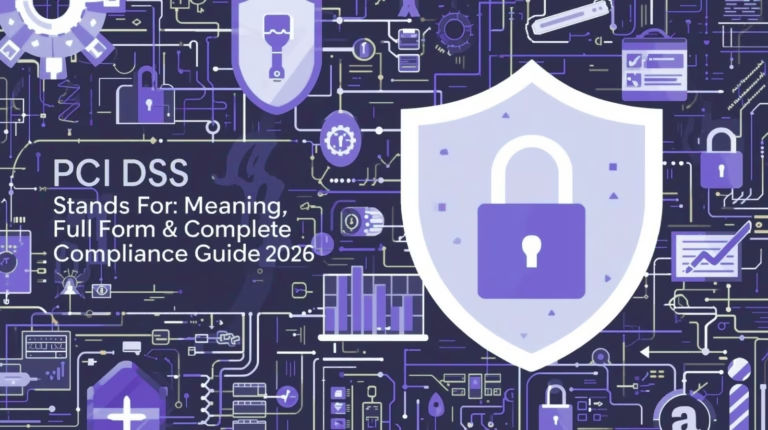Table of Contents
Pages
- About Us
- Vulnerability Assesment & Penetration Testing
- UAE Data Privacy
- KSA PDPL implementation and Fines
- Continuous Monitoring in Cybersecurity | Cyber Security Monitorring
- Empower Your Business with VCISO Services
- Soc Services
- Cyber Technology
- Security Assessments
- Audit and Compliance
- service
- India
- Cyber Security Framework SAMA
- Training & Skill Development
- Australia
- NESA Audit
- SOC2 Audit
- UAE
- Qatar
- Saudi Arabia
- Geographies
- Privacy Policy
- Penetration Testing
- Managed SOC Services
- Threat Hunting
- Dubai Computer Forensics
- Malware Analysis
- Cloud Security
- Incident Handling And Monitoring Services
- Red Team Assessments
- Mobile Application Audits
- Data Privacy
- ISO 27001
- Cyber Security Expert
- Vulnerability Assessment
- Application Security Auditing
- PCI DSS Compliance
- Privacy Policy-old
- Contact
- Blog
- Home
Categories
- What is Cyber Security?
- Web Application Security Auditing
- Web Application Security
- Web Application Firewall
- Web Apllications Security
- wapt
- Vulnerability Testing and Penetration Testing
- Vulnerability Scanning
- vulnerability assessment and penetration testing
- vapt
- Useful
- Uncategorized
- UAE Cyber Security Company
- top cyber security companies in the UAE
- Top 10 GRC Tools
- SOC UAE
- SOC 2 Certification Cost
- Security
- Red Teaming Services
- Red teaming
- Race Condition
- Privacy
- Pentest
- Penetration Testing
- PCI DSS Stands for
- PCI DSS Requirements
- PCI DSS Purpose
- PCI DSS Meaning
- PCI DSS Compliance
- PCI DSS
- News
- new tech
- Most Popular SIEM Tools
- Managed Security Services Provider
- it security companies in dubai
- ISO 27001 Consultants in UAE
- ISO 27001 Compliance in the UAE
- General
- cybersecurity regulation
- Cybersecurity
- cyber sercurity firm
- Cyber Security UAE
- Cyber Security Specialist
- Cyber Security Services
- Cyber Security Near Me
- cyber security master
- Cyber Security Jobs in Dubai
- Cyber Security GRC
- Cyber Security Expert
- cyber security course
- Cyber Security Consultant
- Cyber Security Company in Dubai
- Cyber Security Company Dubai
- Cyber Security Company
- Cyber Security Companies
- Cyber Security Basic
- Cyber Security Awareness
- Cyber Security
- Compliance
- Application Penetration Testing
- AI-Powered Cybersecurity
Cybersecurity compliance remains a critical aspect for organizations, especially in the digital age where cyber threats are rampant. Among the various compliance frameworks, FedRAMP holds a significant position in ensuring the security of cloud services and data. Understanding the basics of FedRAMP compliance, the challenges faced in achieving authorization, risk management strategies, technology solutions, and the future landscape of cybersecurity compliance are vital for organizations aiming to navigate this intricate domain effectively.

Understanding the Basics of FedRAMP Compliance
What is FedRAMP and why is it important for cybersecurity compliance?
FedRAMP, the Federal Risk and Authorization Management Program, is a government-wide program that standardizes the security assessment, authorization, and continuous monitoring for cloud products and services. It plays a crucial role in ensuring that sensitive data is adequately protected across federal agencies and service providers.
Key elements of FedRAMP compliance framework
The FedRAMP compliance framework comprises security controls, risk assessments, system security plans, and authorization protocols that cloud service providers (CSPs) need to adhere to achieve and maintain compliance.
Steps to achieve FedRAMP compliance
Organizations aiming for FedRAMP compliance must undergo rigorous security assessments, audit processes, and develop comprehensive security measures as per the FedRAMP security standard. Maintaining a detailed system security plan and privacy policy are pivotal aspects of achieving authorization

Cybersecurity Challenges in Achieving FedRAMP Authorization
Main cybersecurity challenges faced by CSPOs during FedRAMP assessment
CSPOs often encounter challenges related to implementing robust security controls, conducting effective risk assessments, and addressing vulnerabilities highlighted during security assessments. These challenges necessitate a proactive approach towards cybersecurity to ensure compliance with the FedRAMP framework.
Importance of continuous monitoring in FedRAMP compliance
Continuous monitoring plays a vital role in FedRAMP compliance by enabling real-time detection of security incidents, adherence to security controls, and prompt incident response. It ensures that cloud service offerings remain secure and compliant with regulatory requirements.
The role of system security plans in FedRAMP authorization
System security plans provide a detailed overview of security controls, risk management strategies, and incident response protocols implemented by CSPs. These plans are essential for FedRAMP authorization as they demonstrate the organization’s commitment to maintaining a secure cloud environment.

Risk Management Strategies for Cybersecurity Compliance
Effective cyber risk management practices for FedRAMP authorization
Implementing effective cyber risk management practices involves identifying and mitigating potential security risks, conducting regular risk assessments, and developing robust incident response plans. These practices are critical for maintaining compliance with FedRAMP requirements.
Understanding security controls and risk assessments in FedRAMP compliance
Security controls define the security measures and safeguards that organizations must implement to protect sensitive data and information systems. Conducting comprehensive risk assessments helps in identifying security gaps and vulnerabilities that need to be addressed for FedRAMP compliance.
Dealing with data breaches in the context of FedRAMP compliance
Data breaches pose significant threats to organizations’ cybersecurity posture and can lead to non-compliance with FedRAMP regulations. Implementing robust data protection measures, incident response protocols, and security measures are crucial for preventing and managing data breaches effectively.

Embracing Cyber Technology Solutions for FedRAMP Compliance
The importance of cybersecurity firms in helping CSPOs achieve FedRAMP compliance
Cybersecurity firms play a crucial role in assisting CSPOs in implementing robust security measures, conducting security assessments, and developing compliance strategies aligned with FedRAMP standards. Their expertise and support are invaluable for organizations navigating the complex landscape of cybersecurity compliance.
Utilizing cyber technology solutions for enhanced cybersecurity in cloud service offerings
Leveraging advanced cyber technology solutions such as intrusion detection systems, encryption tools, and security monitoring platforms enhances the security posture of cloud service offerings. These solutions help in safeguarding sensitive data, detecting security threats, and ensuring compliance with FedRAMP regulations.
Third-party cybersecurity services for strengthening FedRAMP compliance
Engaging third-party cybersecurity services can provide organizations with specialized expertise, enhanced security capabilities, and ongoing support in maintaining FedRAMP compliance. Collaborating with trusted cybersecurity providers is instrumental in strengthening security measures and navigating the complexities of cybersecurity compliance effectively.

The Future of Cybersecurity Compliance in Cloud Services
Evolving federal risk and authorization management programs (FedRAMP)
The landscape of cybersecurity compliance is constantly evolving, with FedRAMP adopting new measures to address emerging cyber threats and technological advancements. Continuous enhancements to the FedRAMP framework ensure that organizations can adapt to evolving cybersecurity challenges effectively.
The role of NIST and ISO 27001 standards in cybersecurity compliance
Standards such as NIST and ISO 27001 play a crucial role in shaping cybersecurity compliance practices by providing guidelines, best practices, and frameworks for organizations to enhance their security posture. Adhering to these standards complements FedRAMP compliance efforts and strengthens overall cybersecurity resilience.
Trends in cybersecurity management programs for cloud-based products and services
Emerging trends in cybersecurity management programs focus on enhancing threat intelligence, automating security processes, and integrating AI-driven solutions for proactive threat detection. These trends shape the future of cybersecurity compliance in cloud-based products and services, enabling organizations to stay ahead of evolving cyber risks effectively.










